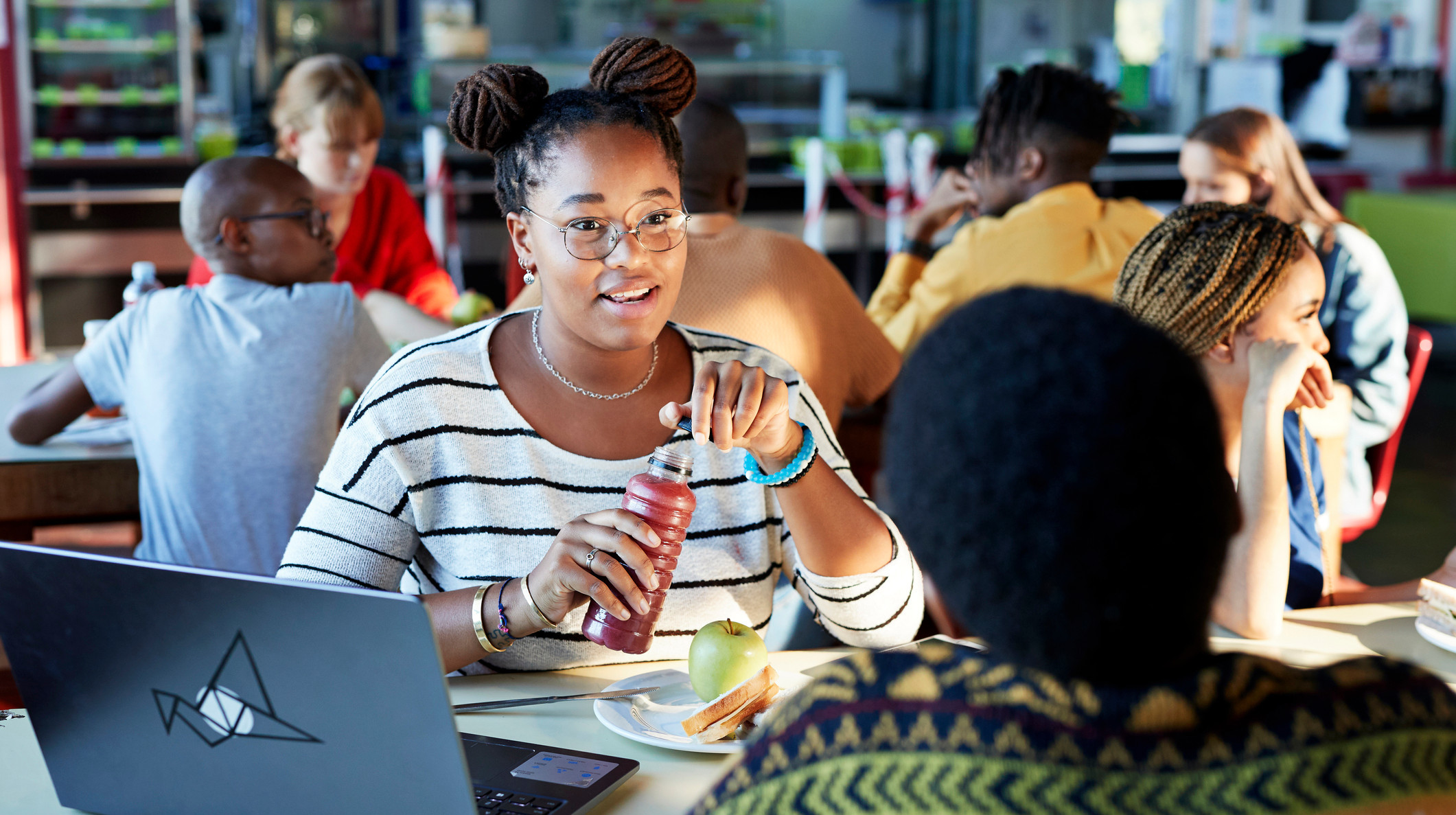Thanks To Coronavirus, College Students Don't Even Get To Eat The Way They Used To
The college dining hall, that hallowed institution of higher scarfing, is as much a part of the social fabric of university campuses as dorm hallways and whichever study rooms have the comfiest armchairs. The media has dedicated a lot of coverage to the college experience in the age of COVID-19, but often with a focus on things like crowded keggers and in-person classes, both of which carry risks of further transmission. The cafeteria, meanwhile, is another important element of campus life that's had the life sucked out of it amid the pandemic, as a recent article in The Washington Post describes.
Since so many college cafeterias have heretofore relied on buffet-style dining to accommodate their crowds—and since the buffet might go the way of the dodo—new solutions have cropped up to feed the masses. At the University of Maryland at College Park, this has taken the form of boxed carryout meals, while other schools have arranged meal pick-up at various outdoor tents across campus. This apparently removes one's ability to grab seconds—a crucial element of college buffet systems that has helped many a freshman establish a fledgling sense of autonomy—but hey, it probably means less food waste, too.
For those campuses that are keeping cafeteria dining open as an option, students must make a reservation online, but that poses problems if the only available time slots conflict with class schedules. Plus, it's hard to coordinate meals with friends, whether you dine in or carry out.
"We used to eat every meal at a table. It's a big difference, and it sucks," Cassandra Wendel, a student at Ball State University, told the Post. "But I wouldn't want to be eating inside any hall in this climate."
Some schools have been able to keep things fairly streamlined and effective; the Post calls out Pennsylvania's Bryn Mawr College for its solution involving more prepackaged food and meal pickup times designed as 20-minute pickup windows to increase flexibility for students. While none of this is ideal, many students remain hopeful that by demonstrating vigilance now, campus life might be able to return to its more carefree, social rhythms once more.
